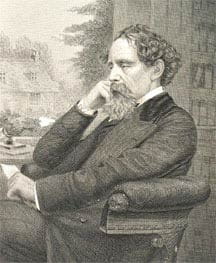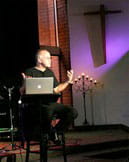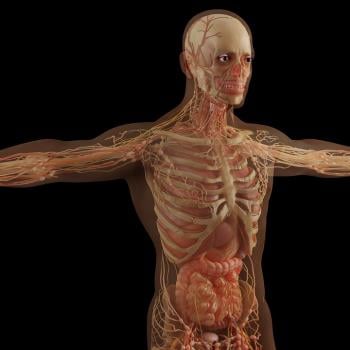By Mark D. Roberts
 In 1988 the Sunday Telegraph of London gave Charles Dickens the title of "The Man Who Invented Christmas." If you're not familiar with the history of Christmas celebrations, this may seem like an enormous exaggeration. But when you look more closely, the Telegraph's hyperbole turns out to be closer to the truth than you might expect.
In 1988 the Sunday Telegraph of London gave Charles Dickens the title of "The Man Who Invented Christmas." If you're not familiar with the history of Christmas celebrations, this may seem like an enormous exaggeration. But when you look more closely, the Telegraph's hyperbole turns out to be closer to the truth than you might expect.
Of course Christians had been celebrating the birth of Christ for centuries before Charles Dickens came along. And northern Europeans also had their winter festivals, both pagan and secular. But in England at the turn of the 19th century, Christmas had almost vanished from the scene. There were several reasons for this disappearance. In part, the continued influence of conservative Reformed Christians -- who believed that people should do only what the Bible commands, and therefore should not celebrate Christmas, especially given its popular excesses -- meant that for many in England Christmas was not a valid holiday.
In October 1843, a trip to Manchester poured fuel on the flame of Dickens's passion for the poor. As he spoke at the Athenaeum, an institution devoted to caring for the poor in Manchester, Dickens's heart was strangely moved. Moreover, he had stayed with his beloved sister Fan (the name of Ebenezer Scrooge's dear sister in A Christmas Carol), who had two young sons, one of whom was frail and sick (not unlike Tiny Tim). So in October Dickens began to write A Christmas Carol. According to his own testimony, his writing of this short book was rather a spiritual experience.
A Christmas Carol was published on December 19, 1843. All 6,000 copies of the first edition were sold by December 22. The book became instantly popular, though the high cost of printing, including the fine illustrations, limited Dickens's profits. Before long, however, vast numbers of people in England and America knew the story, not only from reading the book, but also from dramatic presentations and public readings by Dickens himself.
Because our own celebrations of Christmas have been so strongly influenced by Dickens, we can easily overlook his special contributions to our traditions, such as:
- Christmas as a one- or two-day celebration rather than the traditional twelve.
- Christmas as an occasion for family and close friends to gather for luscious food, singing, dancing, and games.
- Christmas as a time for being generous to the poor.
So close was the connection between Charles Dickens and Christmas that, when he died in 1870, a young woman who heard of it was aghast. "Dickens dead?" she exclaimed. "Then will Father Christmas die too?" Well, as it turns out, Father Christmas didn't die along with his greatest promoter, Charles Dickens. The influence of this man, and, most of all, that of his masterful novella, A Christmas Carol, guaranteed that Christmas would be kept for generations upon generations.
In my next post I'll focus on one of the essential elements in a Dickens Christmas, something I believe we all should include in our holiday celebrations today.
 Mark D. Roberts, as Senior Director and Scholar-in-Residence for Laity Lodge, is an advisor and frequent contributor to TheHighCalling.org. A Presbyterian pastor, Mark earned his Ph.D. in New Testament from Harvard University. He has written six books, including No Holds Barred: Wrestling with God in Prayer (WaterBrook, 2005). This series of reflections on A Christmas Carol were previously posted on his blog, www.markdroberts.com, and are reprinted with permission.
Mark D. Roberts, as Senior Director and Scholar-in-Residence for Laity Lodge, is an advisor and frequent contributor to TheHighCalling.org. A Presbyterian pastor, Mark earned his Ph.D. in New Testament from Harvard University. He has written six books, including No Holds Barred: Wrestling with God in Prayer (WaterBrook, 2005). This series of reflections on A Christmas Carol were previously posted on his blog, www.markdroberts.com, and are reprinted with permission.
11/25/2009 5:00:00 AM




